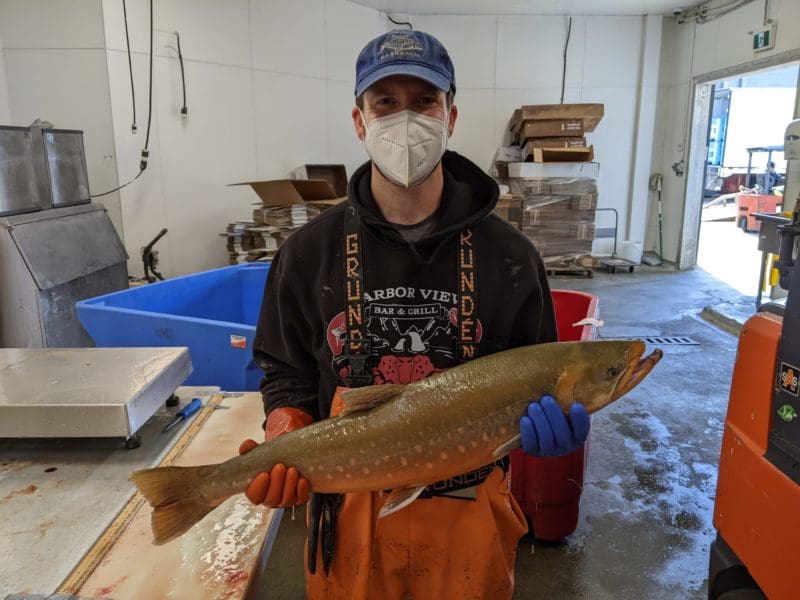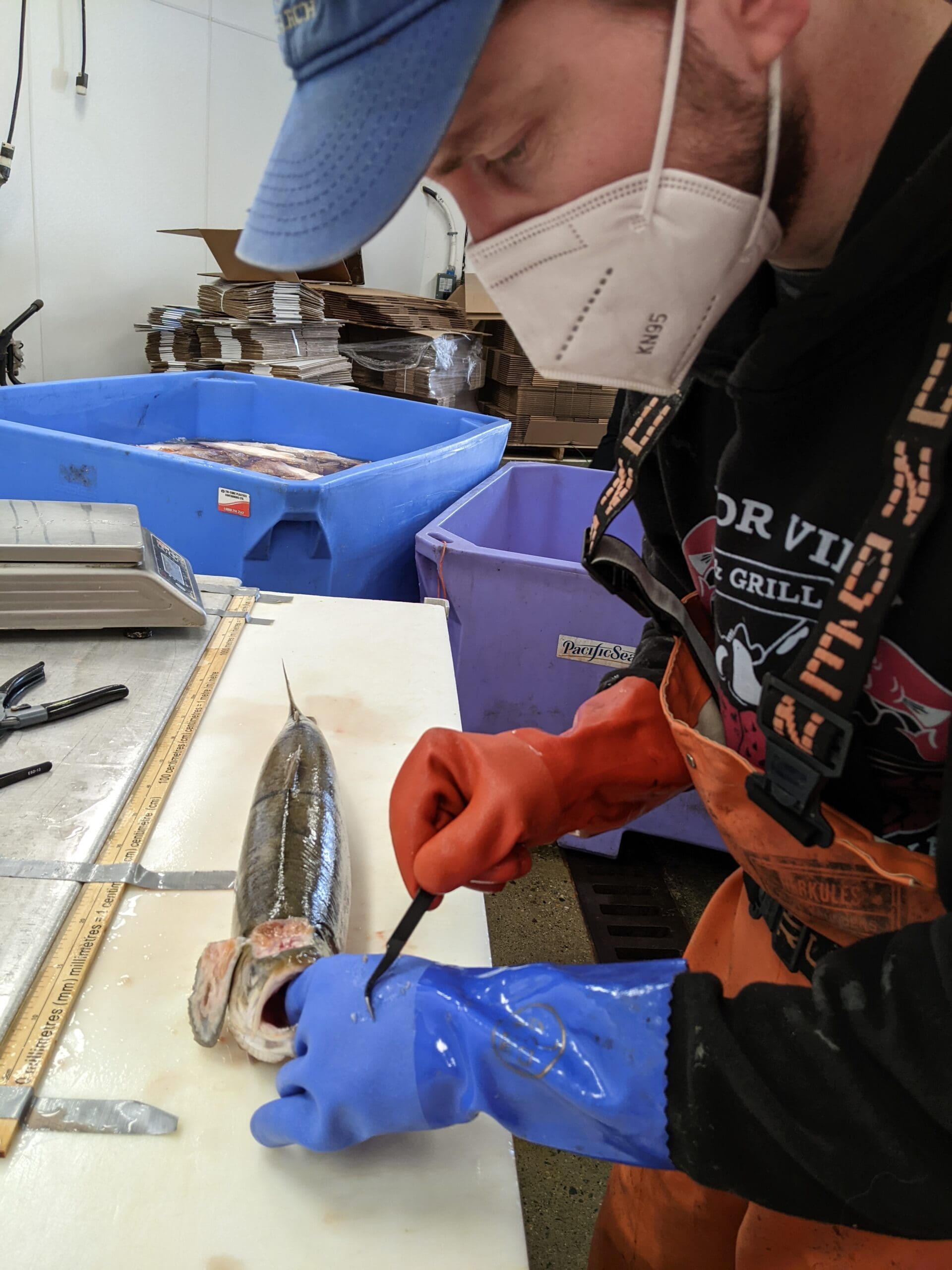Sampling Darryl And Angutimarik's Arctic Char
NewsOur latest batch of Arctic char was a special one, hailing all the way from Kannak Lake and Tubliniq Lake in Nunavut!

Our latest batch of Arctic char was a special one, hailing all the way from Kannak Lake and Tubliniq Lake in Nunavut. You see, the char in these lakes can only be fished by harvesters holding a special experimental license. Very little data exists on the char populations in these two lakes, but Project Nunavut (the non-profit we work with to get our Arctic char) is working with the DFO to change that, in the hopes to expand these Arctic fisheries, increase the quotas, and grant more commercial fishing opportunities to harvesters in these regions.
So in March, Darryl and Angutimarik Siusangnark caught just enough fish to provide DFO scientists with samples to perform an initial stock assessment, or an estimate of the Arctic char populations in these lakes. As a fairly engaged partner of Project Nunavut, of course we offered to help take these samples!
Earlier in May, Jeff Scott, our in-house Sustainable Fisheries Researcher, collected these samples at our fish processor, HTO. With the help of Ravi Maharaj, another longtime Skipper Otto sustainable seafood distribution team member, they measured each fish’s length, weight, determined the sex, and took a fin clip to be used in genetic research at the University of Laval. They also collected the fish’s otolith; ear bones found in the skull that can be used to determine the age of a fish. In the same way you count tree rings, otoliths develop distinct lines every year as a result of the fish’s seasonal diet changes. You can count these lines under a microscope.

Characteristics like age, sex, growth rate, etc. (also known as “life history traits” in the scientific community) are integral in determining population health for any species. Samples are taken to extrapolate and build models of the entire population.
The more data the DFO can get, the better they can estimate how Arctic char populations are fairing in these northern lakes, and determine the impact of expanding the commercial fishery. And if they can introduce more opportunities for small-scale harvesters to sell their sustainable catch, the ramifications for local economies and food security are huge.
We’re honoured to be part of this important work in introducing viable fisheries in the Arctic. Offering Skipper Otto members a taste of this delicious catch is icing on the cake!
